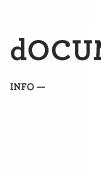

CONFERENCE / SEMINAR / 18:00 27 AUG 2012 / Ständehaus
LECTURE: What is Thinking? Or a Taste that Hates Itself
german
Free entrance.
Christiane Voss: Aesthetics of Illusion
The lecture is about the aesthetics of illusion, which seems to be rather an anachronism, if one takes into consideration the well known critique of modernism and postmodernism vis-à-vis straightforward mimetic conceptions of Art. Tendencies of Realism and Naturalism were dominating style and form in Theater, literature and paintings during the 18th and 19th century and not at least Brecht confronted this illusionary understanding of Aesthetic in terms of his new form of self-reflexive theater. Adorno also stated prominently in his Aesthetics that the illusionary factor of Art, it is betraying reality effects, has to be negated, by choosing strategies of self-reflection, which point out the nature of art products, as being-made-things instead to the illusion of being naturally given. Illusionary surfaces (trompe l'oeil) and psychologically realistic narratives tend to cover their artificiality by appealing to the emotions and wishful identifications of the beholder - Therefore the recipient gets manipulated and is being made passive by illusionism.
Nevertheless, some aesthetic media survived this critique and above all cinematographic aesthetics still operate in an illusionary mode. But instead of accusing cinema to be reactionary or anachronistic on the basis of modernistic refusing of illusion - this lecture reflects upon traditional conceptions of illusion and aesthetic experience, which are much more complex than the "betrayal-thesis" suggests. A multifaceted side-glance to philosophical aesthetics between 18 and 20 century is illuminating the already self-reflective structure of aesthetic illusion, which is suppressed or overlooked in the critique. The 'willing suspension of disbelief' and the readiness to be immersed figure as preconditions for successful illusionism, thereby allowing all sort of pleasure and emotions to emerge, without anesthetizing epistemic faculties by the same token. This historical introduction into the realm of philosophical aesthetics of illusion aims at a systematic apology in favour of it as well. This also brings with it a rejection of an aesthetic, that is too neatly reducing aesthetic experience to reflexive operations. The decisive status and function of emotional modeling in and for aesthetic experience has to be rediscovered and revisited. And the vehicle for that revision is a new reflection on aesthetic illusion in general.
Text:
Immanuel Kant, Kritik der Urteilskraft, Leipzig: Verlag von Felix Meiner, 1922
http://www.scribd.com/doc/103564231/Kant-Kritik-Der-Urtuielskraft
Christiane Voss is a philosopher working as Professor of Media Philosophy at the Bauhaus University Weimar since 2009. She researches and publishes on philosophical aesthetics and epistemology, film theory and media anthropology of emotions. She also works as a documentary filmmaker.
Under the direction of the German philosopher Christoph Menke and in collaboration with Chus Martínez, the seminar What is Thinking? Or a Taste that Hates Itself is a series of twelve two-part sessions focusing on the relationship between art and philosophy, between thinking and perceiving. It is an attempt to address the questions and the methods of philosophy for those who are curious but not necessarily close to the field. Each session is divided into a public lecture every Monday evening in the Ständehaus, followed by a more intimate discussion seminar on Tuesday mornings in the Zwehrenturm of the Fridericianum.
In September 1959, the philosopher Theodor W. Adorno gave a lecture on the occasion of documenta 2. A few days earlier, he had mentioned in a letter to Max Horkheimer his interest in visiting the exhibition, in seeing what culture—art—could do after the greatest collapse that the country and the world had ever experienced. This lecture, "The Idea of New Music” (Die Idee der neuen Musik), is of key significance to dOCUMENTA (13). It is read and commented upon by Albrecht Wellmer at the opening of the exhibition and by Carla Harryman at the end, as the inspiration and source for a reflection on the importance of deeds, like art, and thoughts, like philosophy, that are less driven by aims and results, than guided by values.
The What is Thinking? seminar is a rigorous meditation on language, on meaning, on the limits and possibilities of skepticism, on imagination as the ground for social democracy, and on art and experience. It aims to contribute to an understanding of the importance of an art exhibition with the history and tradition of documenta, as a crucial space for the community to respond to questions of ethical and aesthetic significance.
The seminar sessions can be attended individually or in full. Texts and other materials for the sessions are available online.